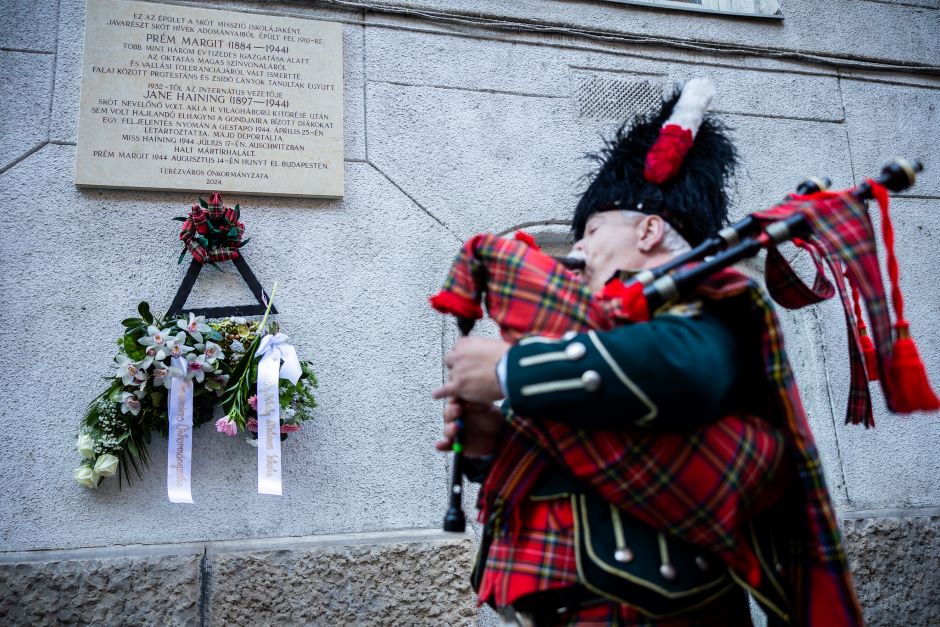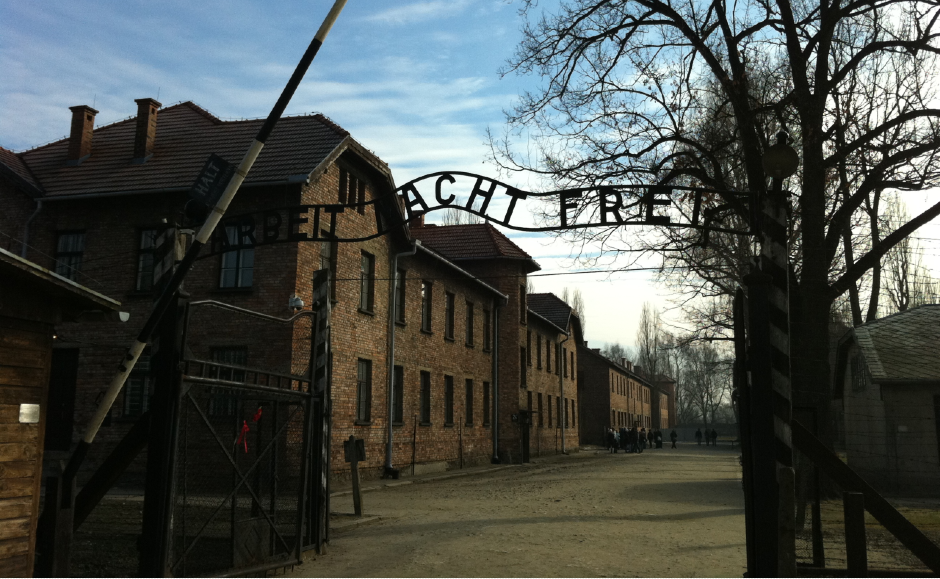New documentary about Scots Holocaust heroine made for schools
Published on 4 April 2025 6 minutes read
A new documentary about a Scot who died in Auschwitz during the Second World War is being made for schools.
Filmmakers hope that the story of Jane Haining, who refused to abandon Jewish girls in her care and flee for her personal safety, will powerfully resonate with young people and deepen their understanding of the Holocaust.
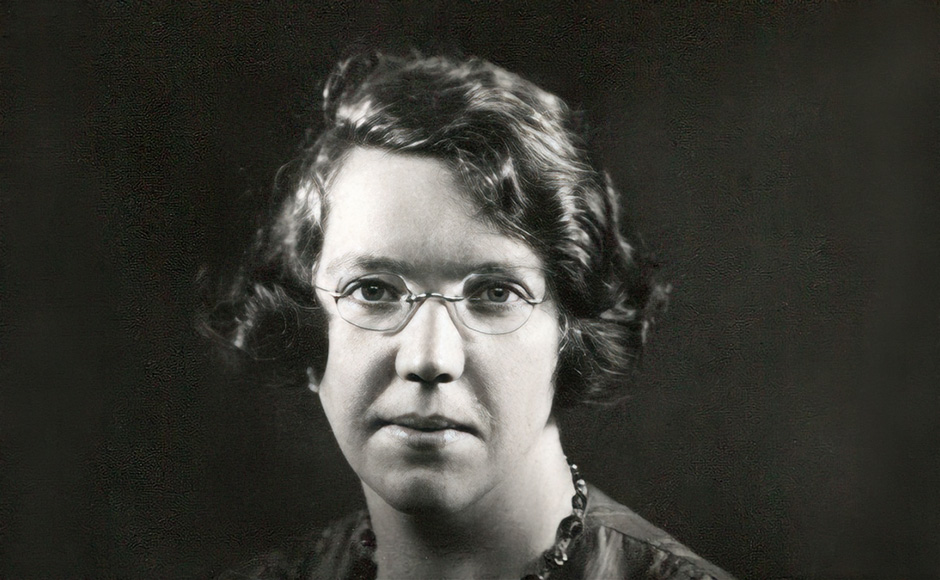
She grew up on a farm near the village of Dunscore in Dumfriesshire and served as the matron of the Scottish Mission School in Budapest, Hungary from 1932-44.
It was a day/boarding school for around 400 Jewish and Christian girls aged 6-16 and when the war broke out in 1939, Miss Haining repeatedly resisted calls from her employer, the Church of Scotland, to return home.
She was determined to stay in her post and continue doing her duty and famously said 'If these children need me in days of sunshine, how much more do they need me in days of darkness?'
The film will chart her story from growing up in Dunscore, attending Dumfries Academy and working as a secretary in Coats thread making factory in Paisley before taking up her matron role in Budapest.
An ordinary yet extraordinary woman
Miss Haining helped keep pupils safe until March 1944 - when the Nazis finally turned their attention to Hungary and its Jewish population - and was betrayed by the cook's son-in-law whom she caught stealing scarce food meant for the girls.
Former pupil Agnes Rostas witnessed her arrest and revealed in 2016 that her haunting last words to sobbing children were "Don't worry, I'll be back by lunch".
But Miss Haining never returned to the school and was charged with eight separate offences and jailed in Budapest before being transported along with Hungarian Jews to Auschwitz in Nazi-occupied Poland on 14 May, 1944.
She was given the number 79467 and forced to work as a slave labourer but only survived a few months.
The matron was 47 and her death certificate said she died in hospital, succumbing to cachexia following intestinal catarrh, on 17 July but it is likely she died in a gas chamber.
The film is being made by the Unison trade union, which is committed to Holocaust education and celebrating the life of a woman who once worked in a Paisley factory.
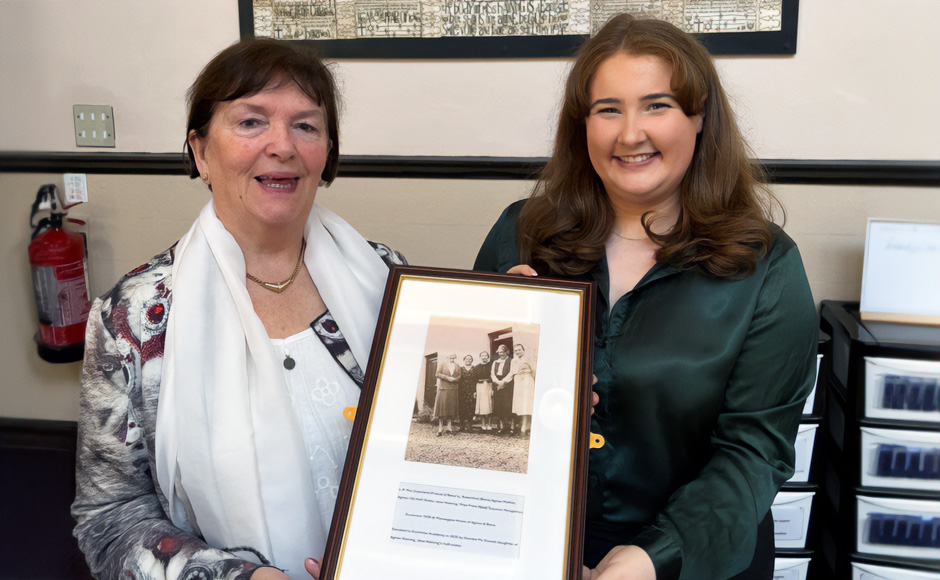
Last week, a crew interviewed Deirdre McDowell, Miss Haining's niece, at Dunscore Parish Church and Dumfries Academy history teacher Heather Chalk and some of her S2 pupils who are learning about the courageous matron.
The connection with the school is particularly poignant because Miss Haining is a former star pupil – she was dux in 1915 – and Mrs McDowell's mother Agnes Haining, Jane's half-sister, was also educated there.
Mrs McDowell presented Miss Chalk with a framed photograph of the siblings, Margit Prem, head teacher of the Scottish Mission School, her grandmother Bena and a family friend.
It was taken outside Agnes Haining's Mansegate home in Dunscore in 1939, not long before the two sisters were due to leave for Hungary to spend the summer with Scottish Mission School pupils on the shore of Lake Balaton.
However, the outbreak of war meant that 16-year-old Agnes stayed at home and Jane returned to the Scottish Mission School alone with Miss Prem to look after "her girls".
The documentary makers also interviewed members of Dunscore Parish Church, which is home to a permanent exhibition dedicated to Miss Haining.
A cairn in her memory is located beside the building.
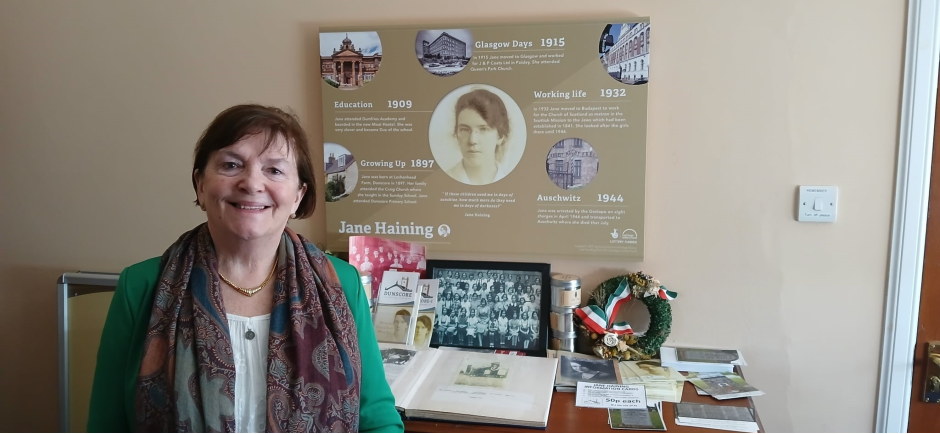
Unison Scottish convener and Renfrewshire branch Secretary Mark Ferguson said he and branch treasurer Stephen Hicks have been taking people to the Auschwitz camps for the past eight years.
"Our study tours allow individuals to learn about the Holocaust and feel connected more closely through Jane Haining's story," explained Mr Ferguson.
"These delegates can then relay her story and educate the wider community on the horrors of the Holocaust.
"Unison has commissioned a film to illustrate our work, Jane's story and the Scottish connection to the horrific events at Auschwitz Birkenau.
"It is hoped that it will be used as part of a schools programme to be delivered across Renfrewshire.
"This work could not have been possible without the active involvement of Jane's family members who have joined us at events and campaigning, providing an important insight into her life.
"Dumfries Academy and Dunscore Heritage Centre, as well as members of the local community, feature in the film and we thank them for their participation.
"Renfrewshire Provost, Councillor Lorraine Cameron, has been personally involved and provides a valuable link to the council and facilitating our plans for a documentary launch in January 2026."
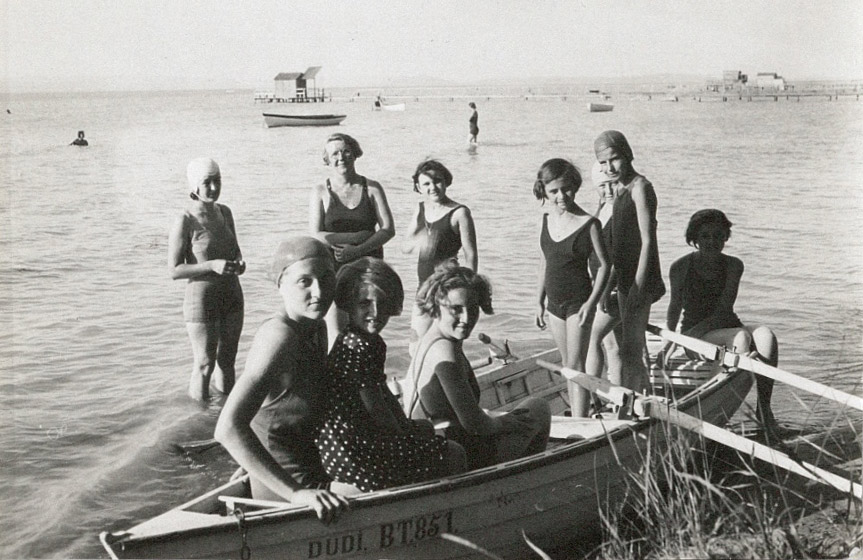
Unison will gauge the response to the film in Renfrewshire before making a decision on whether it should be made available to schools across Scotland.
Mrs McDowell, who was born in Dunscore but lives in Derry, Northern Ireland, is passionate about keeping her aunt's memory alive.
"I am delighted to be taking part in this documentary and it was a pleasure to present a photograph to Dumfries Academy and meet some of the pupils learning about Jane's story," she said.
"Jane had a strong Christian faith and for her to move to Budapest alone, a city where she knew no-one and learn the language was an amazing thing to do.
"But she felt that as long as she had God with her and followed Christ's teachings, she would be all right and that was her maxim throughout her life."
Asked why she thought it is important that school pupils learn her aunt's story, Mrs McDowell replied: "Jane was an ordinary yet extraordinary person and her sacrifice shows them that little things can mean so, so much.
"She did not do anything huge, she looked after children and was a humble, kind, brave and compassionate person.
"If we followed her example and treated our fellow human beings like she did, the world would be a much more wonderful place."
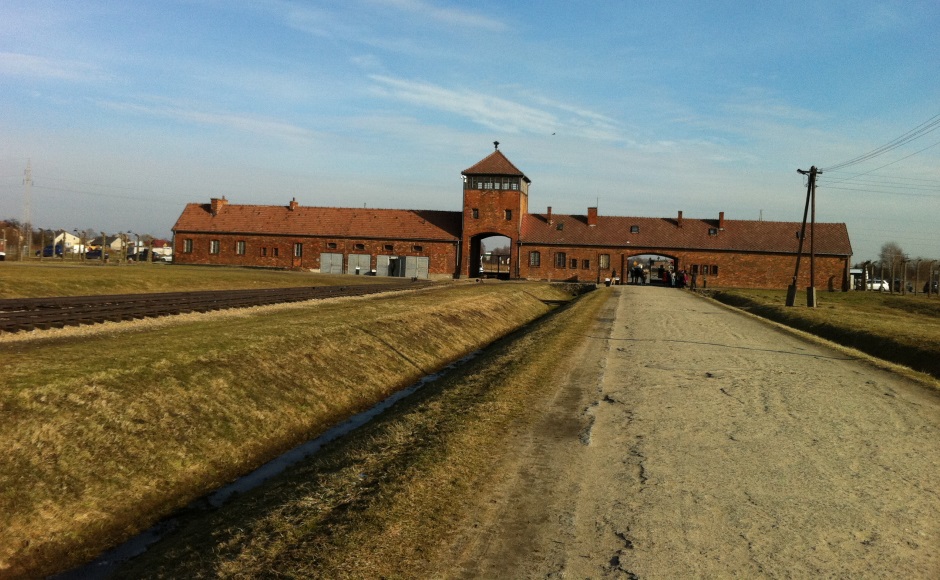
Miss Chalk said the lessons taught to pupils explore Miss Haining's life and death with in-depth discussions on her courage and the nature of the ‘crimes' that led to her being sent to Auschwitz.
"Jane Haining is an alumnus of Dumfries Academy and by linking the Holocaust narrative to her life, the tragedy became more personal for the students, helping them understand how closely it resonates with their own community," she added.
Miss Chalk said the lessons were delivered to the S2 class as part of the school's Religious, Moral and Philosophical Studies curriculum.
"Although I am a history teacher, this topic was incorporated into the RMPS program to explore the moral dilemmas Jane Haining faced while in Budapest," she explained.
"The lessons provided a valuable opportunity to examine the ethical challenges she encountered, fostering meaningful discussions on courage, sacrifice and moral decision-making in the face of adversity."
Miss Chalk said it was "truly an honour" to be presented with the photograph by Mrs McDowell.
"It provides additional insights into Jane's story, deepening my understanding and making her sacrifice feel even more profound," she added.
"The plan is to display it alongside the memorial board dedicated to her, which will enrich the existing tribute and offer greater context to her story.
"This addition will serve as a valuable resource for the students, allowing them to learn more about Jane's remarkable life and legacy."
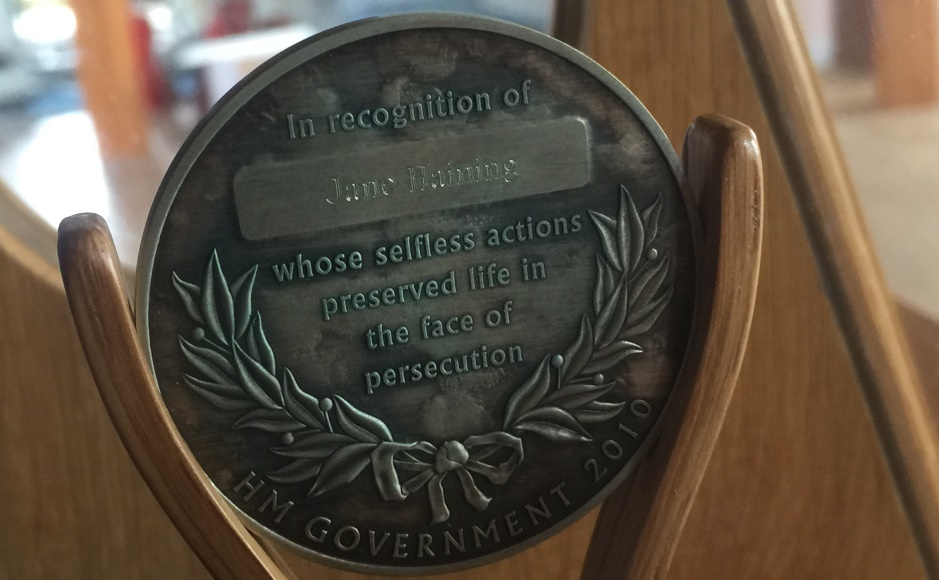
Miss Haining's bravery and devotion to the pupils led to her being posthumously awarded a Heroine of the Holocaust medal by the UK Government.
She is the only Scot to be named Righteous Among the Nations at Yad Vashem in Jerusalem, Israel's memorial to victims of the Holocaust.
Pam Mitchell, an elder at Dunscore Parish Church, said she believed Miss Haining's story can potentially influence people, particularly youngsters, to follow her example and stand against discrimination.
"With her Christian values, Jane showed kindness, fairness and compassion to all her pupils," she said.
"Her example, to stand up for what she believed in may help young people to become more confident in speaking out, and acting against prejudice.
"Who she was and what she stood for is still very important in our world today."
